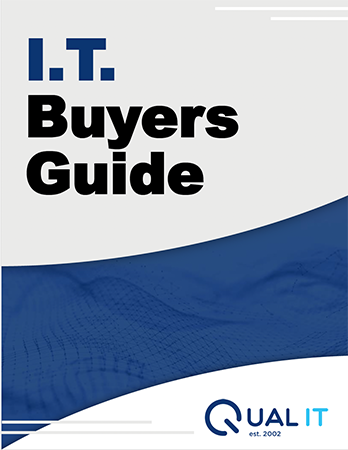
Financial advisors in Salt Lake City face new cybersecurity risks from AI misuse
There’s no doubt that artificial intelligence is transforming the financial services space. From summarizing client meetings and generating portfolio reports to helping draft client communication, tools like ChatGPT, Microsoft Copilot, and Google Gemini are now everywhere.
Used well, these tools can boost productivity and streamline day-to-day operations for financial advisors in Salt Lake City. But when used without guardrails, they can also become serious IT security liabilities.
Even boutique firms aren’t immune.
The Real Risk Isn’t the AI – It’s How You Use It
The threat isn’t the AI model itself. It’s what your staff might be feeding into it. When advisors or support staff paste sensitive financial data into public AI platforms, that information can be retained, used to train future models, or even leak without your knowledge.
Take Samsung, for example. In 2023, engineers at the tech giant accidentally leaked internal source code into ChatGPT. The privacy implications were so severe, the company banned public AI tools across the board.
Now imagine an advisor at your firm pasting client account details or portfolio performance data into a public AI tool to get help with a summary. That data could become part of a training set, putting your clients’ privacy—and your compliance status—at risk.
The New Threat: Prompt Injection
Beyond careless input, there’s a more insidious risk called prompt injection. This technique embeds hidden commands into email messages, PDFs, transcripts, or even YouTube captions. When your AI tool is asked to process one of these items, it could be tricked into exposing confidential information or performing unauthorized actions.
In essence, the AI becomes an unknowing accomplice.
Why Salt Lake City Financial Firms Are Especially Vulnerable
Many advisory firms operate without any clear policy on AI use. Advisors and staff often adopt these tools independently, believing them to be just another productivity hack. But these platforms aren’t as private as they seem.
And without defined usage guidelines or endpoint monitoring from your IT provider, there’s no way to prevent sensitive data from slipping out.
For financial firms handling wealth management data, compliance audits, and fiduciary responsibilities, that’s not just risky—it could be career-ending.
How to Protect Your Advisory Firm Right Now
You don’t need to eliminate AI. But you do need to manage it. Here’s how:
- Create an AI Usage Policy
Define which AI tools are allowed, what types of data must never be shared, and what to do when in doubt. Document it. Train your team on it.
- Educate Your Staff
Most advisors and admin staff don’t understand how public AI models store and process data. Share clear, jargon-free guidelines that explain how AI misuse can become a cybersecurity and compliance threat.
- Stick to Business-Grade Tools
Tools like Microsoft Copilot are built for business use and offer stronger data protection. Avoid open-access platforms unless they offer enterprise-level controls.
- Monitor and Restrict Access
Work with a managed IT services provider in Salt Lake City who understands the financial industry. Tools like Endpoint Detection and Response (EDR) can monitor AI-related activity and help block unauthorized data flows.
Bottom Line: AI Is a Double-Edged Sword
Artificial intelligence isn’t going away. The firms that learn how to use it wisely will gain a competitive edge. The ones that ignore its risks could end up with a compliance crisis on their hands.
At Qual IT, we help financial advisors in Salt Lake City navigate the complex intersection of AI, cybersecurity, and compliance. We’ll help you build a smart usage policy, implement the right protections, and secure your systems without slowing your team down.
Click here to book your free cybersecurity and network assessment.
Because one copy-paste mistake shouldn’t be what brings your firm down.



